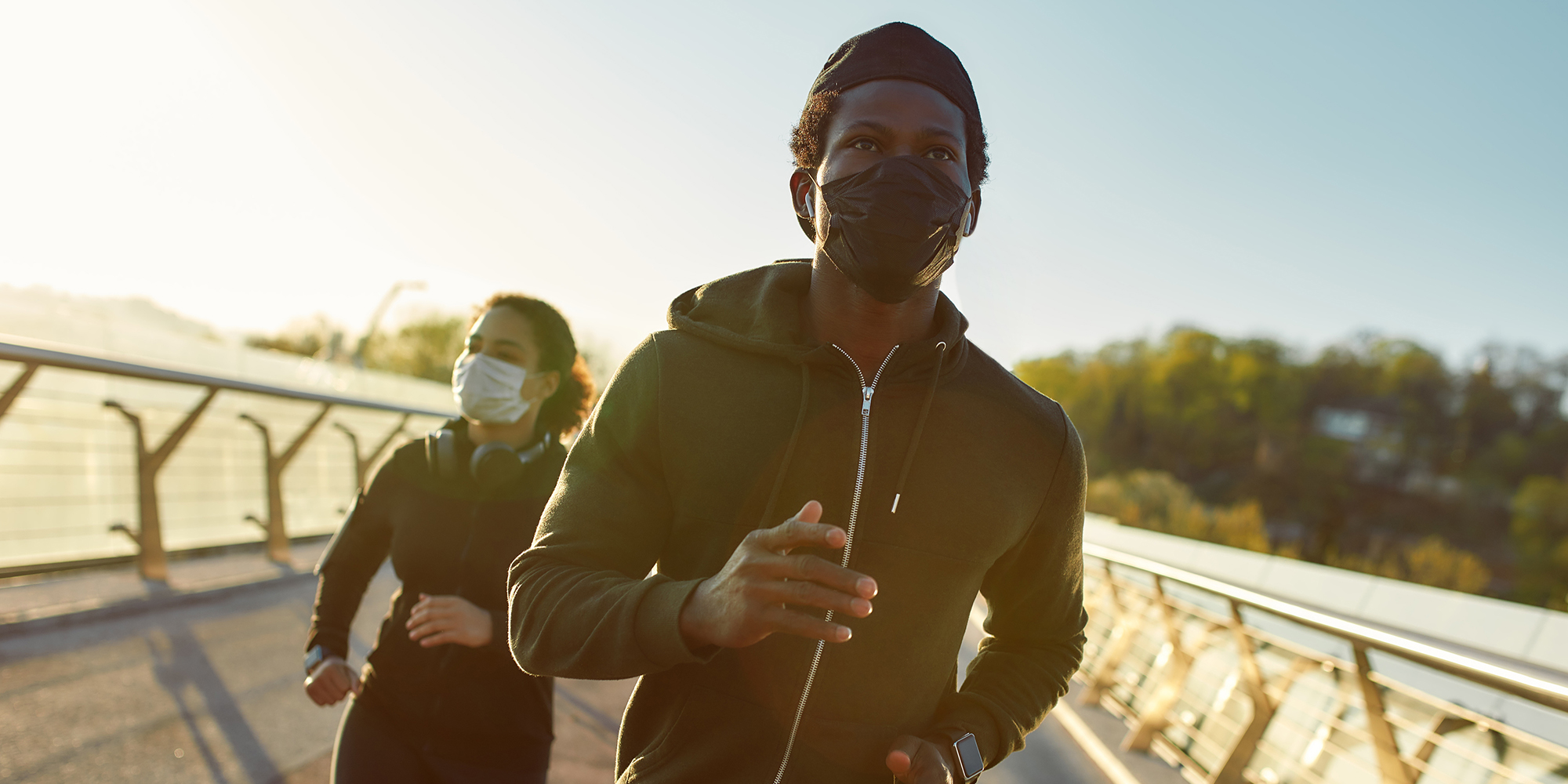Don't let your new workout land you in the doctor's office
January 7, 2021
With gyms still closed and months of working at home, chances are you've become more sedentary than you were before the pandemic started. While there are days when it's important to rest your mind and body, getting regular exercise is a great way to improve both your mental and physical health – just make sure you're working out safely to avoid unexpected injury.
"Overuse injuries are some of the most common ones I see," says Saint Agnes Sports Medicine Physician, Dr. Richard Oravec. "These injuries can range from anything like an inflamed muscle to a stress fracture. They occur when people do work or exercises that their bodies are not conditioned properly to do."
Whether you're trying to start a new fitness regimen, picking up a new activity, or you're just new to exercise, it's important to take things slow. Ease into new movements and exercises and start with small, manageable goals. You'll be able to better prepare your body for its new level of activity and keep yourself from getting injured or burning out before you reach your long-term goals.
"You have to give your body time to adapt to a new routine," Dr. Oravec says. "For example, if you want to run ten miles, you need to work your way up to that goal over several weeks or even months to prevent injuries."
Dr. Oravec also suggests cross training to strengthen muscle groups at different times, to ensure that one muscle group does not get overused. For young children and teens especially, playing two or three different sports keeps the body at its healthiest level and helps improve endurance, strength and skills in each sport.
"Whatever your activity, it's important to find something you enjoy," Dr. Oravec says. "Exercise in general is great for your mental and physical health, but if you can't find an activity you enjoy, you aren't likely to develop a routine."
With gyms in California still shut down, developing a regular fitness routine is a huge challenge for many. But finding time to exercise during a global health crisis is more important than ever because of the benefits your mind and body can reap. Exercise helps combat mental conditions like anxiety and depression and lowers your chances of developing diabetes, high blood pressure or metabolic diseases like obesity.
"There are still a number of great options out there to keep you moving," Dr. Oravec says. "You can find programs online, workout in a home gym, bike with your family, swim or find a hiking trail. Just be sure to practice physical distancing, stay in small groups and carry a mask with you if you're exercising in a high-trafficked area."
As you try out new forms of exercise, make sure you're taking precautions to avoid accidents like falls that can lead to sprains, fractures and breaks. The same goes for children during home recess programs as a part of distance learning this semester. Whether they're playing in the backyard or riding a bike down the street, make sure they have proper safety equipment and supervision.
"Generally, if the pain you feel does not severely impact your day-to-day activities and improves within a few days of rest and icing, you don't need to see a doctor," says Dr. Oravec. "It's when you can't put weight on an ankle, or you don't recover after four days or so that you should stop in to see my team at Ortho On Demand or call your primary care physician."
